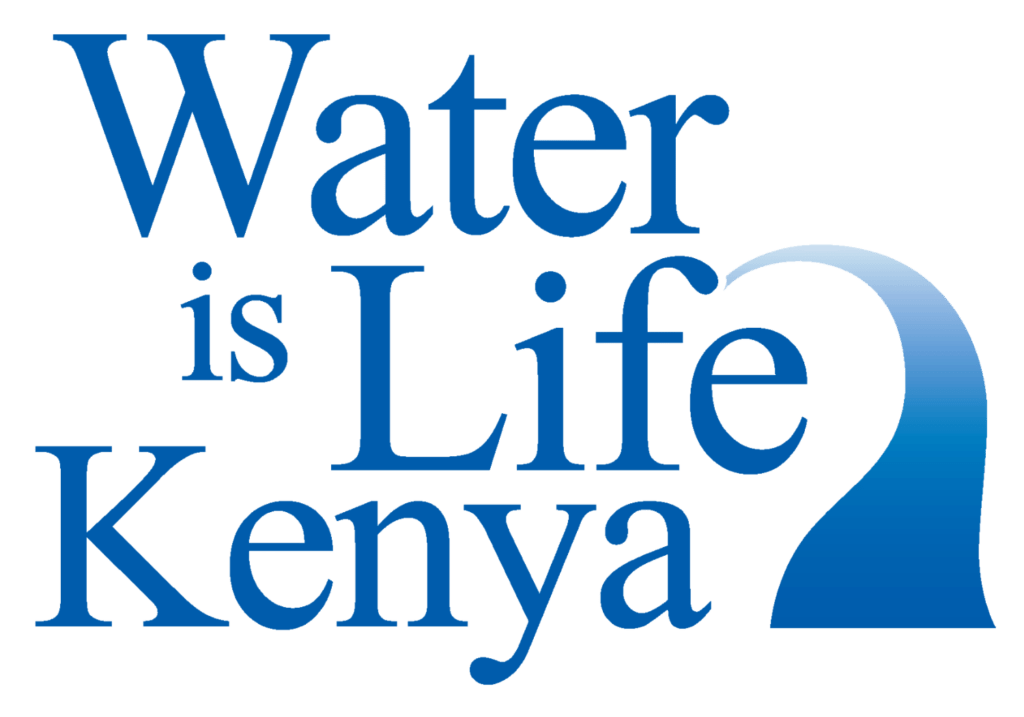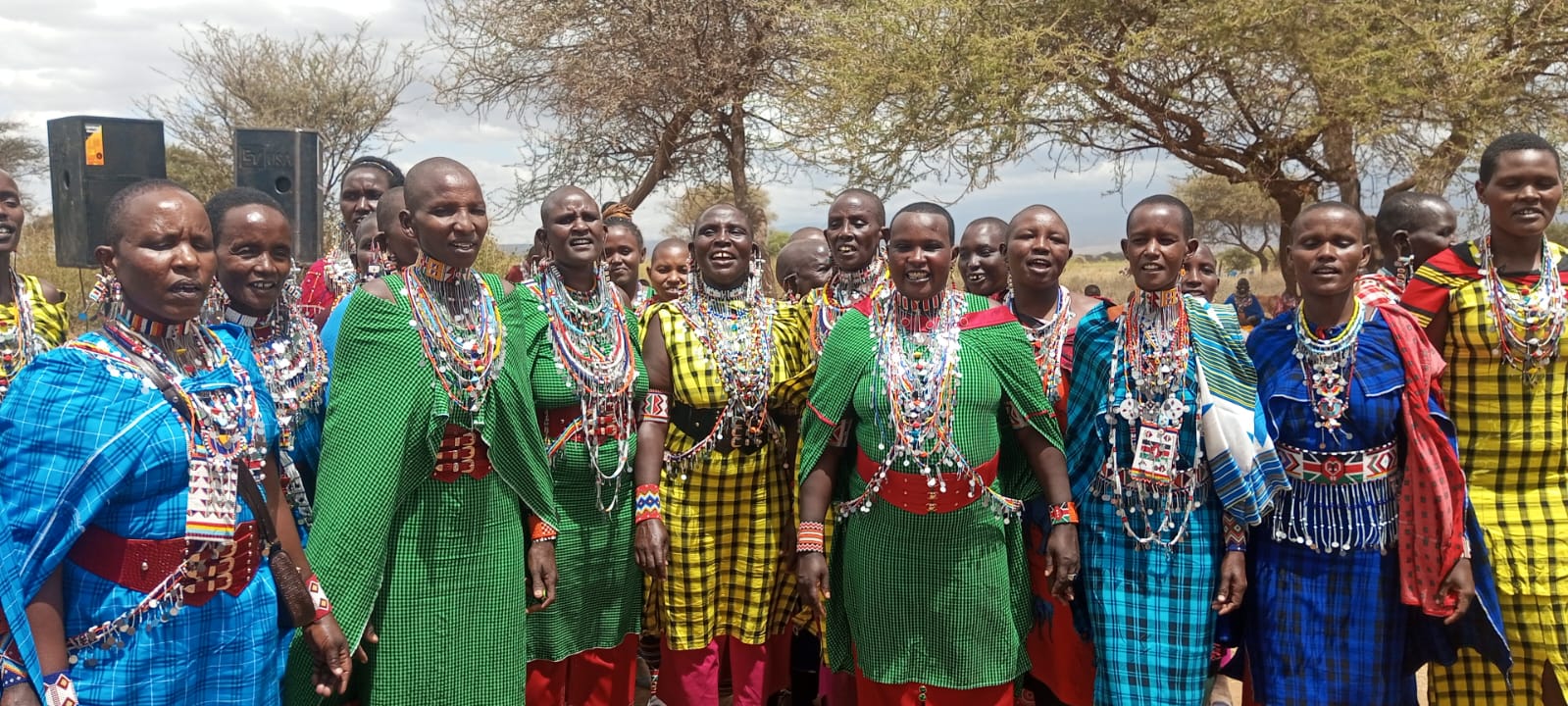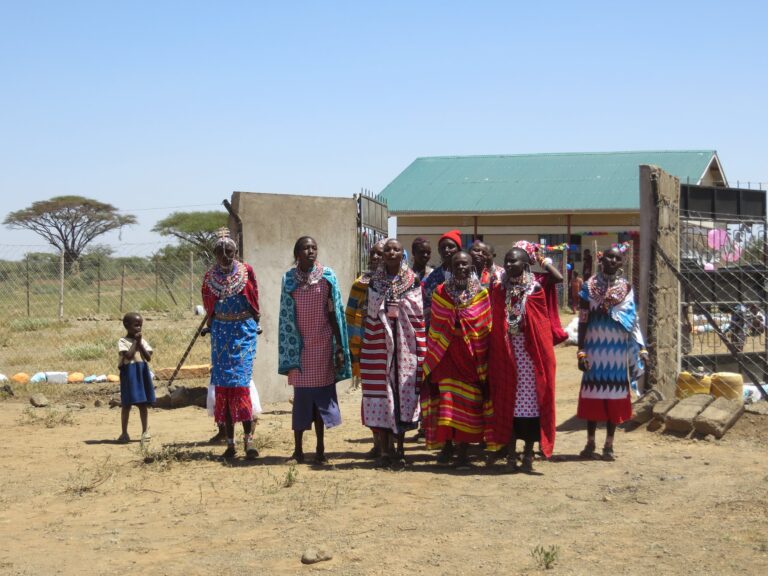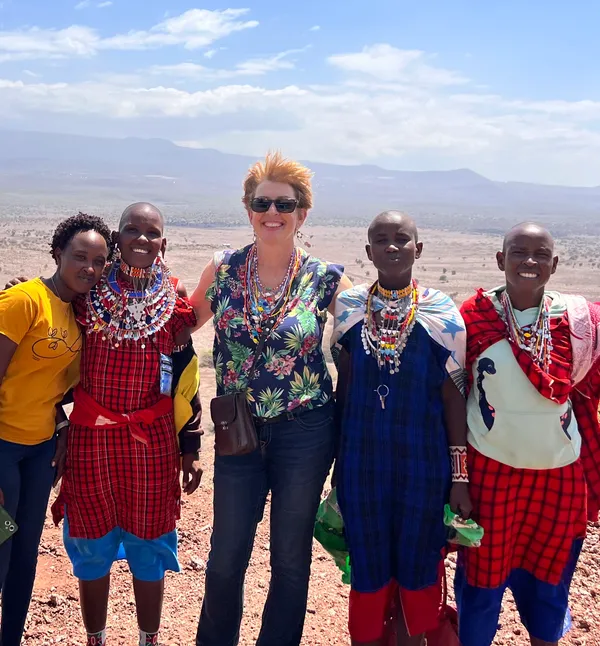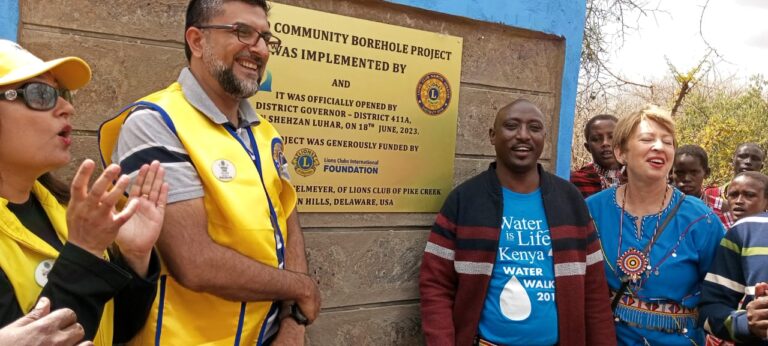We’ve entered the third year of our innovative Hope for Widows (HFW) Program. Begun in 2022, HFW came out of a response to help widowed Kenyan women who face immense odds due to disenfranchisement and gender inequality. Over the past two years, more than 100 women have been trained through our program. Let’s look at how we’ve supported these women since this summer.
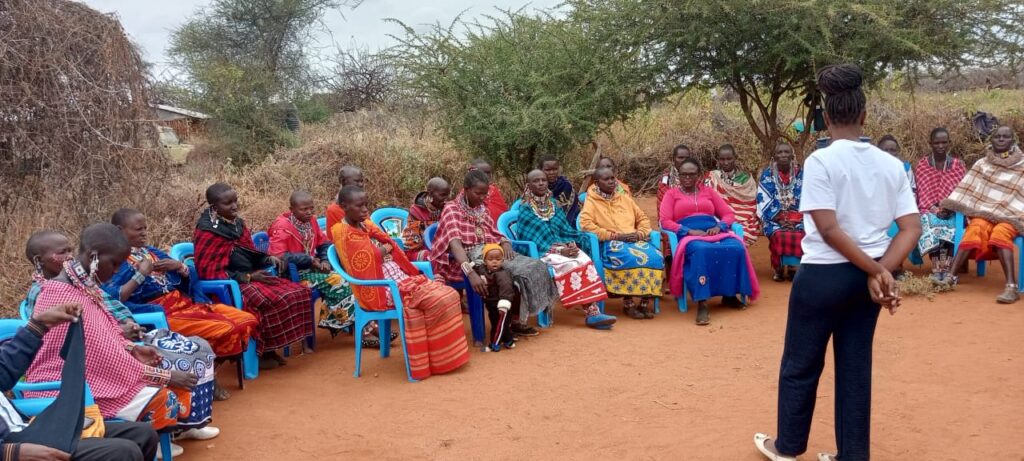
Goats, Grants, & Graduation of Group 1 Widows
On Friday, August 6, our HFW participants celebrated at the Goats, Grants, & Graduation Ceremony. The first group of widows—who entered the program in 2022—graduated, while the second group received their second grants.
The first Hope for Widows cohort had two groups—one in the Kilimanjaro Highlands and the other in Amboseli. The Amboseli women began working together early on. The Highland group, though, is made of more independent farmers. After a few months, the Amboseli widows formed their own Self-Help group.
Since we started meeting with them two years ago, the Amboseli widows now meet every week to check in on each other. They encourage one another, add to their group savings account, and engage in healthy competition.
They even worked together to plan the Goats, Grants, and Graduation ceremony! They met every day to decide who would be responsible for food, equipment, setup, etc., so that everything would be perfect.
Around 800-900 people were in attendance. The graduating widows had their own tent to distinguish themselves in a place of honor. They wore yellow shukas with matching shoes and belts. As a symbol of their graduation, they each received a certificate, a photo of their group, and a personalized shopping bag.
We are so proud of these women! Not only have they worked hard to earn money to support themselves, they’ve also become examples to other Maasai women. In recent weeks, the most successful widows have begun to pool their money and uplift other women who are struggling.
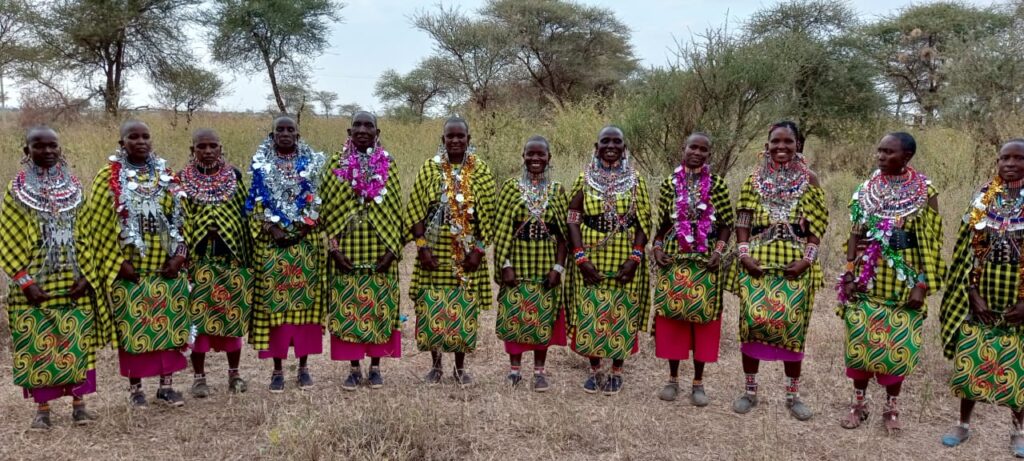
Goats & Grants for Group 2 Widows
The second group of widows (who wore green shukas at the Goats, Grants, & Graduation ceremony) have also been hard at work with their businesses. The hope is that, after learning business skills and confidence, women can generate savings in addition to making enough to pay for food, school fees, and other expenses. For some, this hasn’t been so easy.
These second-year widows are broken into two groups—Ogulului and Amboseli. The Amboseli widows joined the built-in support network of the Group 1 Amboseli widows. This extra support has made them more successful. These women are located near tourism routes, so their businesses do better. They also pool their savings with the Group 1 widows.
The Ogulului women have approached things differently. With less tourism, they have fewer customers, so entrepreneurship isn’t so straightforward. Their region is better for livestock keeping, so some have focused on building their goat herds. A few women have thrived, while others are still learning. Still, each woman has made progress.
At last year’s Goats & Grants ceremony, these women received a $150 cash grant for their business and 3 goats. This year, the Group 2 widows received a second grant of $150. This will help them buy stock for their businesses, which will get a boost from the additional stock. After the lessons learned in their first go-round, they are poised for greater success this time.
Also last year, widows kept one baby goat for themselves and gave one away to a needy woman. Both the Group 1 and Group 2 ladies were happy to continue the tradition, and about 20 baby goats were gifted to needy neighbors.
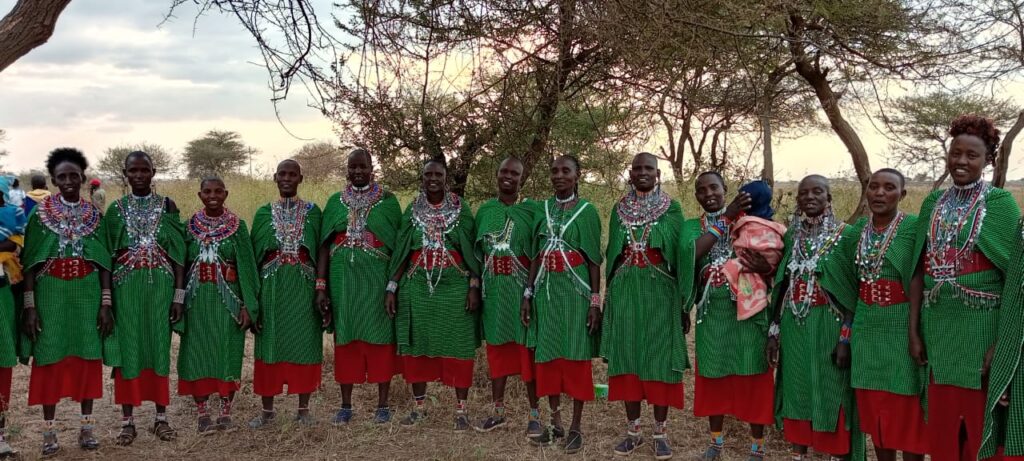
Goats & Grants for Group 3 Widows
The Group 3 Widows attended the Goats, Grants, & Graduation Ceremony as onlookers. Over the summer, they were trained in business skills, profit, risk of business, seasonal fluctuations of business, choosing a business to run, the Rights of Women and Widows, and Livestock as a Business (LAB) principles.
Here are some facts about these women:
—On average, they have 5 children.
—Some women have been widowed recently while others have been widows for a long time.
—A few were young when they married much older men.
—Several were mistreated and taken advantage of by their deceased husbands’ families.
—Some have experience selling jewelry or food, while a few feel lost because their husbands were their sole providers.
—A common thread is that they all want to take care of their children and afford school fees.
On September 7, this third group of women in our Hope for Widows Program participated in their own Goats & Grants Ceremony in Amboseli, and widows from the other two groups also came to offer their support.
Dressed in blue shukas, the widows received their own goats and grants. These goats serve the same function as the cows in our LAB Program: they’re a long-term asset, as they will produce even more goats in the future. The grants are seed money for their small businesses, which can now finally begin after a summer of training sessions.
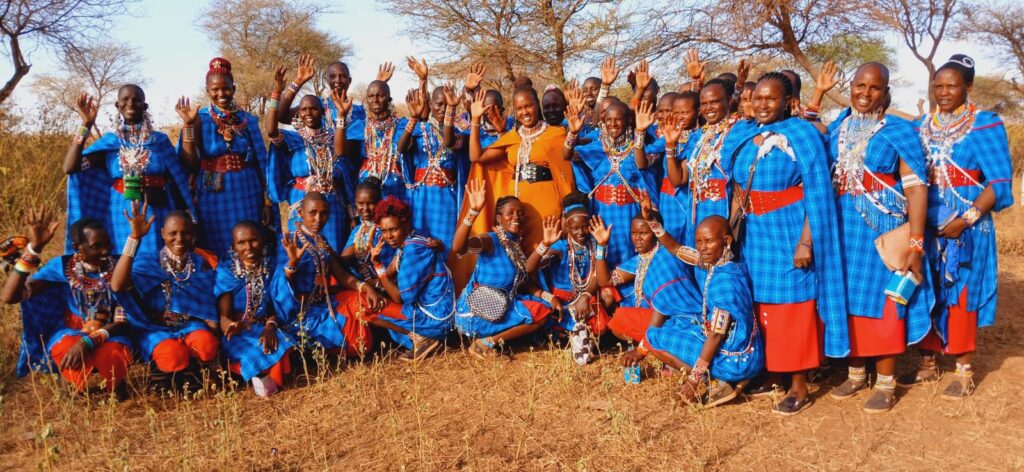
We’re optimistic that our newest Hope for Widows participants will be as successful as the previous groups have been. Although they have many obstacles to overcome, they also now have support and guidance from other women like them. We know they’ll, too, inspire the next group of women we’ll train next year when we enter the fourth year of the program.
